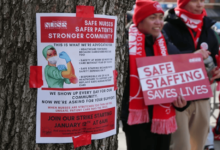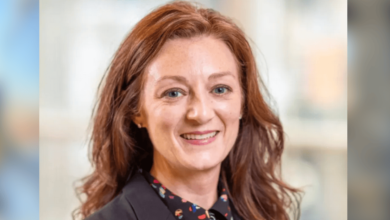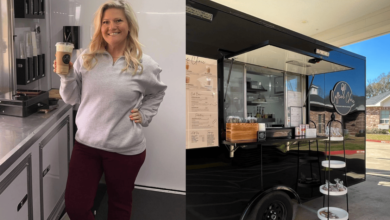Nurses help boost dementia diagnoses but ‘more to be done’

Dementia nursing leaders have welcomed an increase in diagnoses, but say patients need greater access to specialist nurses.
NHS England this week announced progress in its drive to reduce the number of people living with undiagnosed dementia and therefore without the support they need.
“Receiving a timely diagnosis is vital for families as it can enable them to plan and prepare for their future”
Caroline Scates
It said, as of June 2024, a “record” 487,432 people had a dementia diagnosis in England.
The figure is equivalent to a diagnosis rate of 65% for people aged 65 or over who are estimated to have a form of the disease.
The diagnosis rate is an improvement from 63.5% in June 2023, 64.4% in June 2024, and NHS England said it was the highest it had been since the start of the Covid-19 pandemic.
However, it remains below the 66.7% target that NHS England is aspiring to.
It comes after a scheme was launched in 2022 to get specialist nurses and other healthcare professionals proactively assessing care home residents for dementia.
The care home programme aims to redress the negative impact the Covid-19 pandemic had on dementia diagnosis rates.
Caroline Scates, deputy director of development for Dementia UK’s network of specialist dementia nurses called Admiral Nurses, welcomed the increase in diagnoses.

Caroline Scates
“These diagnosis rates are a positive step in the right direction, bringing us closer to meeting the national target rate,” she told Nursing Times.
“Receiving a timely diagnosis is vital for families as it can enable them to plan and prepare for their future.
“It also helps the person with dementia and their family better understand the type of dementia they are living with and how their symptoms affect them, as well as what they can do to manage them.”
To ensure people with dementia can access the care they need, Ms Scates said more needed to be done to “bridge the gap” between the health and social care systems.
She also said patients and families needed better access to specialist dementia nurses.
“We are calling on the new government to put dementia on the agenda and deliver expert and personalised support for people after a diagnosis, as well as increasing access to specialist dementia nursing, like that offered by our Admiral Nurses, in all health and social care settings,” she added.
Dr Jeremy Isaacs, national clinical director for dementia at NHS England, praised the hard work of nurses and other staff in boosting diagnoses, but acknowledged that there was more to do.
“Getting a diagnosis of dementia is the first step in supporting people, with a wide range of NHS services able to help,” he said.
“NHS staff have worked hard to recover services with the number of people with a diagnosis rising significantly over the last year, and now at a record level, but there is more work to be done.”
To further increase diagnoses, NHS England is encouraging people to visit their GP for an assessment if they believe they have symptoms of dementia.







